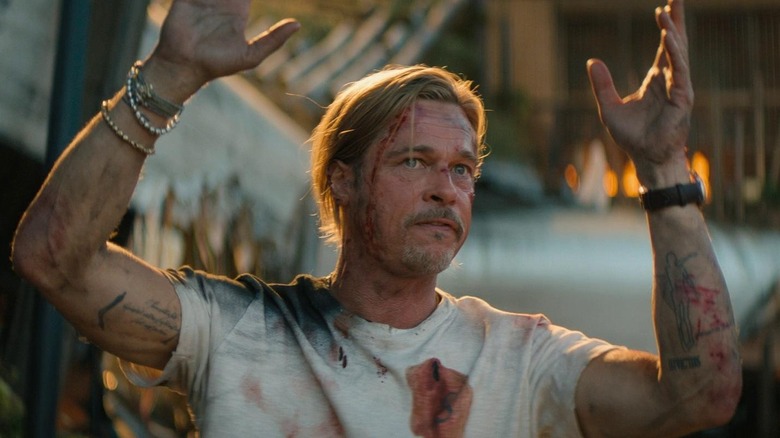Why Is Bullet Train Rated R? What Parents Should Know Before Letting Their Kids Watch
With movies like "Kill Bill," "Running Scared," and "Smokin' Aces," the 21st century has no shortage of films that set a group of dangerous and often eccentric killers against one another. However, one of the things that helps to set "Bullet Train" apart all these years later is that it's based on a book rather than being an original screenplay.
Based on the novel of the same name by Kotaro Isaka, "Bullet Train" sees a cadre of killers double-crossing and taking each other out on the titular high-speed Tokyo train. Naturally, given the film's violent premise and its R-rating, parents might find themselves wondering what age is appropriate to let their kids sit down with David Leitch's adaptation.
Still, while the consensus from parents is that "Bullet Train" is only appropriate for viewers 16 years of age or older, kids voted that the movie was fine for teens in the 14+ category (per Common Sense Media). Either way, there are probably a few specific things that parents are going to want to know about the film before they agree to let their kids watch it for themselves.
Kids and parents agree that the film is too much for pre-teens
The first thing that just about any viewer will notice about "Bullet Train" is that the film is incredibly violent. People are sliced to ribbons, blown apart, and one unlucky character even takes a meat hook through the head. All the same, the fact that the movie often plays these moments off with a note of dark humor helps to keep the tone of the film from getting too grim or overbearing. "Bullet Train" also contains a sex scene. Though it's only quickly seen through a passing window, it's definitely graphic enough to see exactly what's going on.
Finally, the film also contains a lot of foul language throughout. While this can be a concern in and of itself, it's unlikely that if the excessive violence isn't too much for your kids that a few swears are going to be the deal breaker. All in all, it seems to be the consensus that younger viewers in their mid-teens should be mature enough to handle the material in the film.

